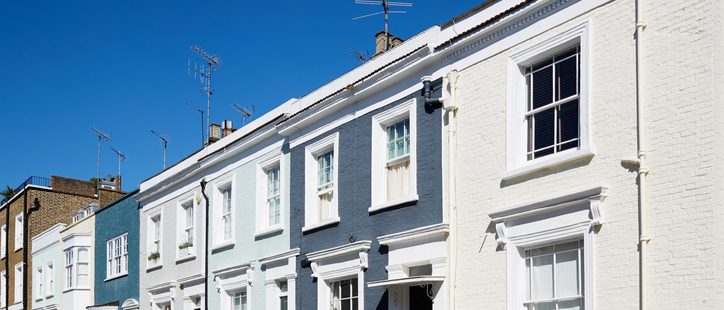Our Opinion: 2022
UK house prices in 2022

2021 was a boom year for lots of things, and one of those things was the UK housing market. Boosted particularly by continued cheap borrowing costs. What does 2022 hold for UK house prices?
The latest figures from Halifax and Nationwide, basically show the same thing. That UK house prices rose at some of the fastest rates we’ve seen since before the last big crash (which happened around the 2008 financial crisis). The question now, for both beleaguered first-time buyers and hopeful landlords, is – what might happen this year?
House prices in the UK rose by 9.8% in the year to December to a record high average of just over £275,000, reports Halifax. Nationwide came out with a similar figure – an increase of 10.4% to an average of nearly £255,000.
That’s apparently the strongest growth in any calendar year since 2006 (which was not long before everything collapsed). And, as Nationwide adds, it means that house prices ended 2021 a grand total of 16% higher than they were at the start of the pandemic.
We’re no longer surprised by the fact that a world-stopping plague proved to be good for UK house prices, but let’s remind ourselves of what drove the gains.
Firstly, and most importantly, house prices are boosted by low interest rates and cheap borrowing costs. The pandemic was not good news for the economy. But it did trigger another round of money printing and rate-cutting, not to mention significant government spending.
With interest rates at record lows, house prices practically couldn’t help but go up. And last year, despite the smallest of rate rises at the end of the year, momentum remained strong and competition between banks for business increased. As a result, it’s still easy to get a home loan and it may well get even easier for the time being, as lenders – unable to drive rates much lower – get creative with terms instead (offering someone a 40-year fixed-rate loan involves taking on a lot of rate risk when rates are at all-time lows).
The other important point is that transactions rocketed during the pandemic. Property deals returned to levels not seen since the boom years before the financial crisis.
Finally, it’s also worth pointing out that one of the biggest worries – that the end of furlough would trigger a big leap in unemployment – hasn’t happened
The question now is: what happens in 2022?
One minorpiece of good news is that the increase in prices last year was mostly about the rest of the UK catching up to London rather than the capital becoming even more ludicrously overpriced. (London prices rose by 4.2% versus 15.8% in Wales, for example). It is better to spread the housing “wealth” around the country, in that homeowners who see values rising in their local towns or suburbs might feel the divide between country and urbanites less keenly.
But, overall, this is not a healthy development. To have house prices rocketing so far ahead of incomes is bad news economically. High house prices make all sorts of other economically and socially important things much harder: from labour mobility to family formation.
In an ideal world, houses would get cheaper the gentle way. Wages would rise faster than prices, so prices would fall in “real” terms, and property would become more affordable without anyone’s personal balance sheets being demolished.
Unfortunately, that “happy” outcome seems rather further away than it did in the mid-2010s. With property, it’s a bit trickier to parse. Rising interest rates may drive up the cost of credit and that should, in turn, reduce the amount available to spend on houses, which in turn would push prices down.
But inflation is more difficult. If inflation drives up rates and the cost of credit, then you have the same overall effect. But that won’t necessarily be the case. Inflation is already a lot higher than interest-rates are, and it so far isn’t making a huge difference, partly because people (probably rightly) assume that central banks will put a lid on rates in order to avoid bankrupting their governments.
Meanwhile, investors often see property as somewhat inflation-protected – particularly if you can buy with cash or cheap long-term debt.
Conversely, there’s a definite risk this year that real incomes will be squeezed, despite rising pressure on wages. Energy prices are already seeing eye-watering increases.
UK house prices are unlikely to see seeing double-digit increases again this year but they are unlikely to fall, since that would most likely require significantly higher interest rates.
4th April 2022
